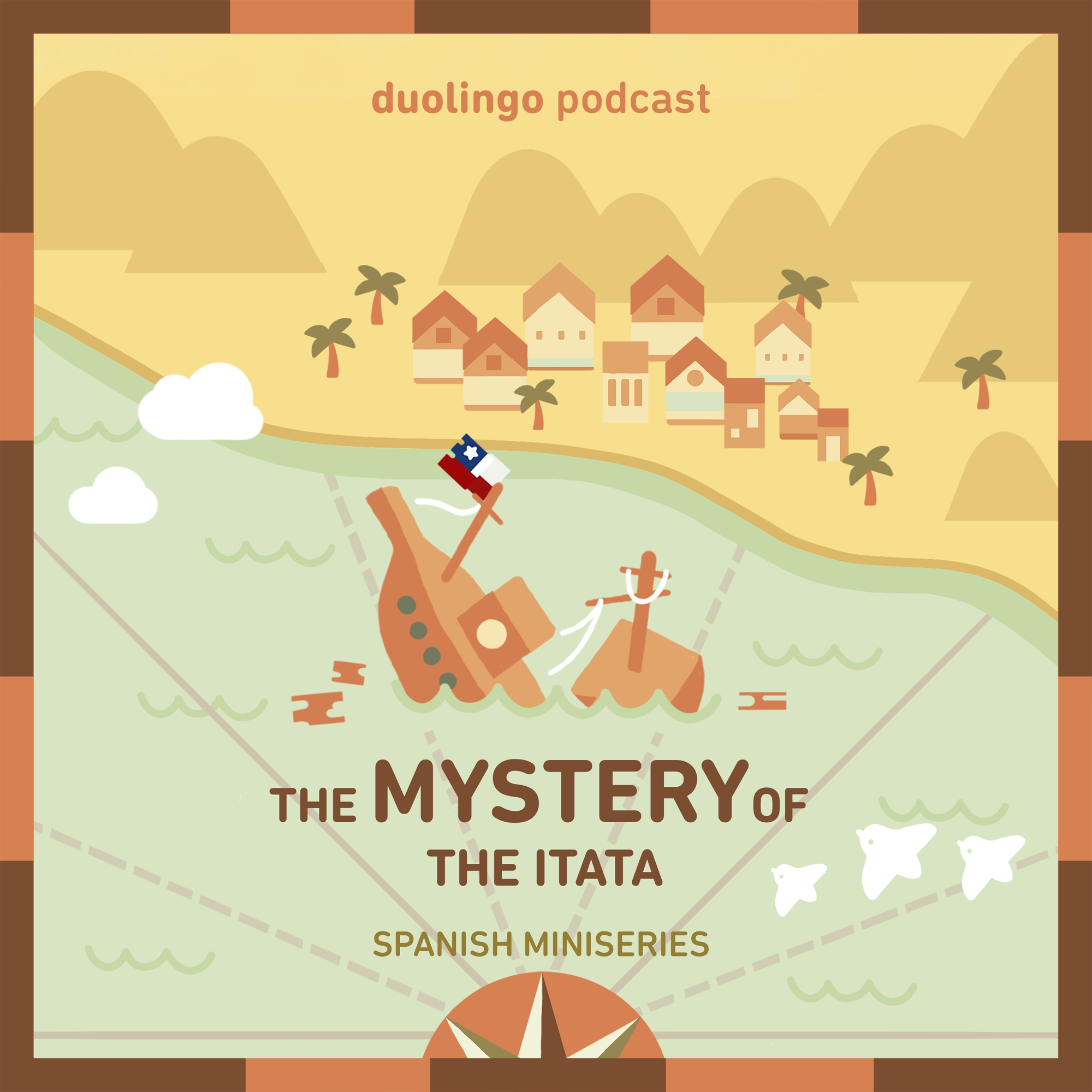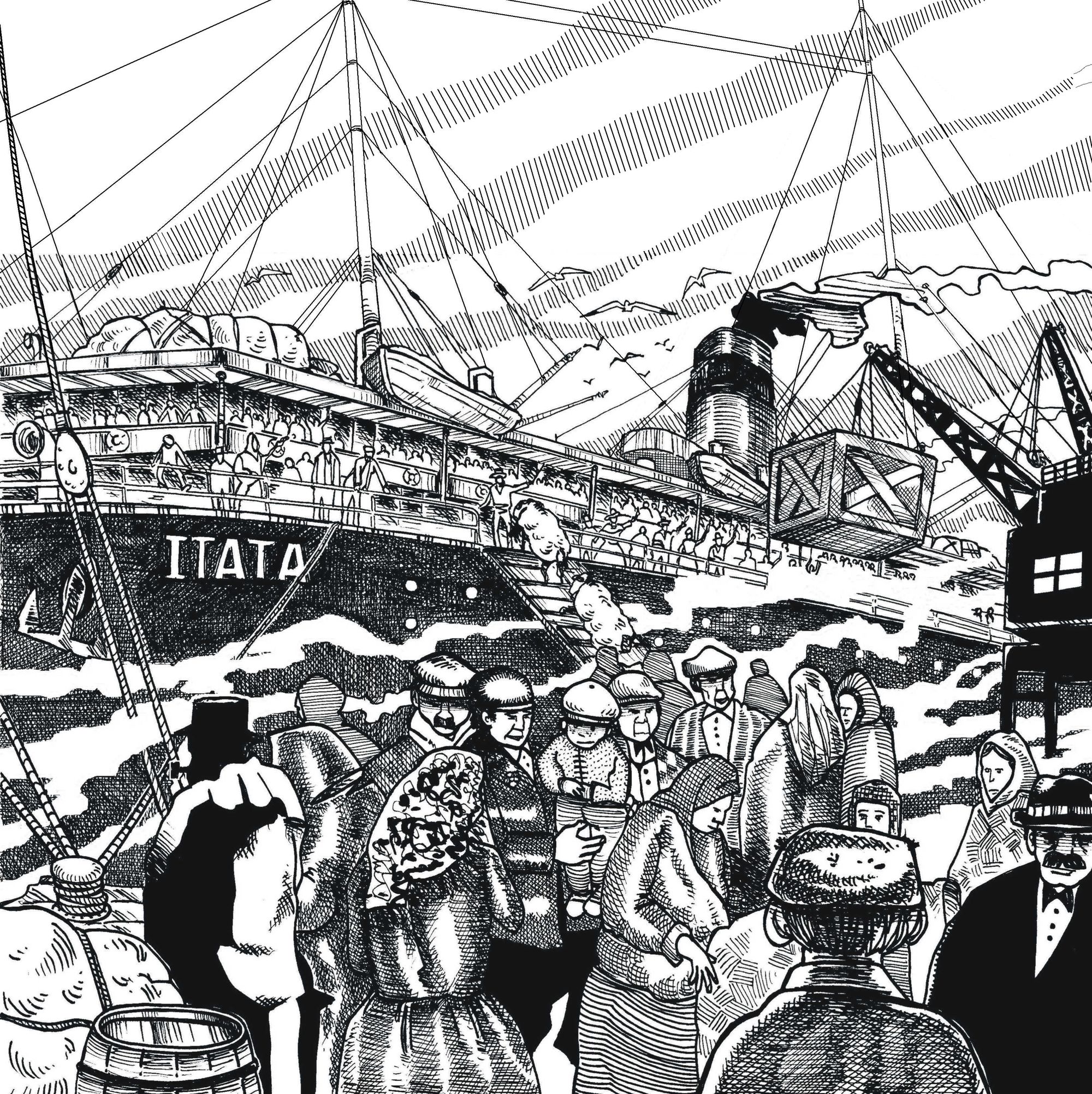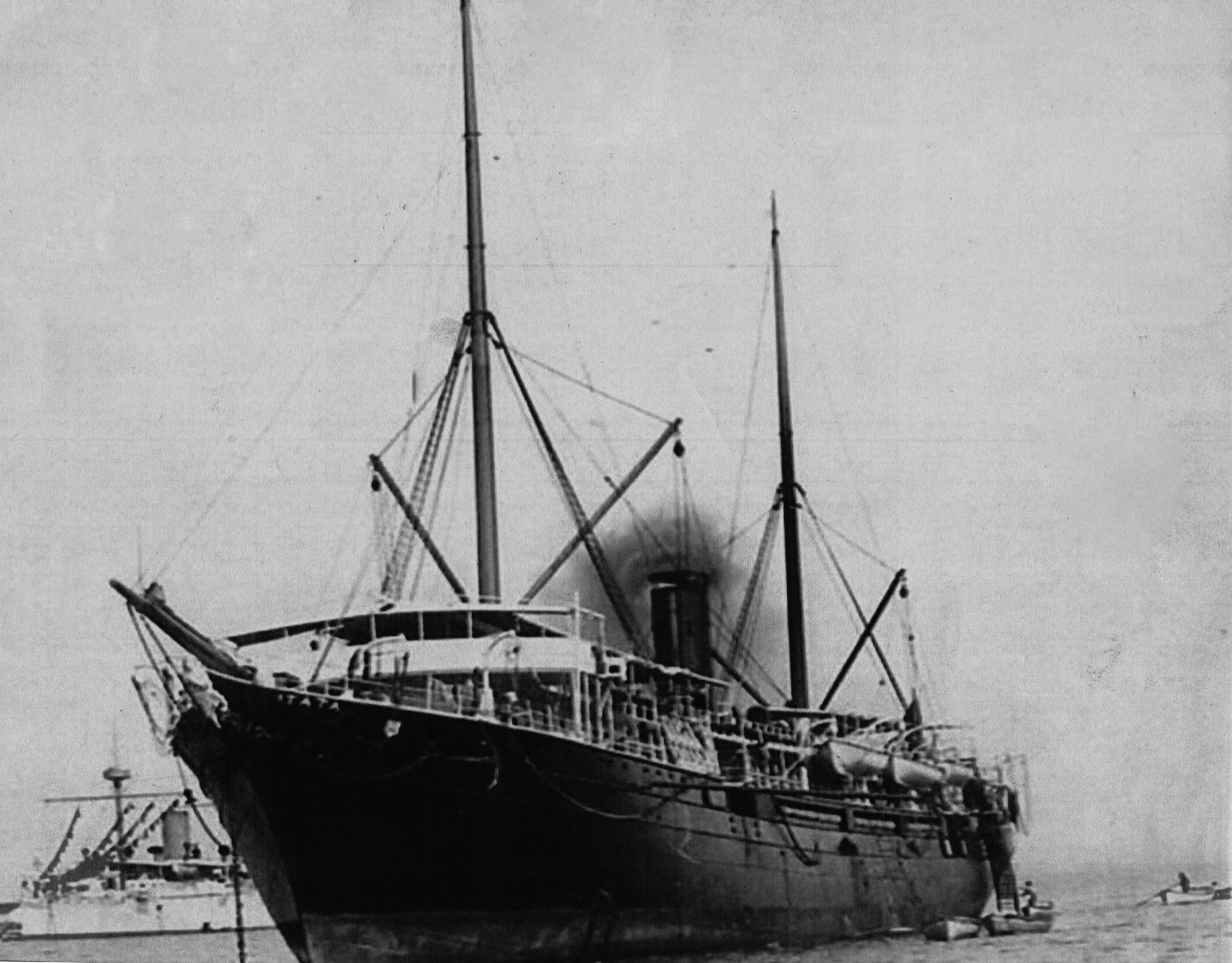When searching for a new topic for this season of the Duolingo Spanish Podcast, we wanted a story that would hook listeners while also teaching the audience something new about Latin American culture and history. Similar to our other serialized seasons like El Gran Robo and The Rebel Thief, we wanted a story that would be new to Spanish learners. Enter, the tragedy of the SS Vapor Itata.

In 1922 the famous warship turned cargo ship sank, taking 500 lives with it. Despite the devastating impact, the event remains mostly absent from Chile’s history. That is, until two scientists decided to devote years of their lives searching for the sunken ship.
The newest season of the Duolingo Spanish Podcast, The Mystery of the Vapor Itata, tells the story of this shipwreck and the two scientists that wanted to honor its history. It’s the very first time this story has been widely shared with English-speaking audiences. As with our other Spanish podcast episodes, the season is designed for intermediate Spanish learners looking to practice their listening skills.
To give learners a behind-the-scenes peek at the series, we chatted with scientists Ricardo Bordones and Carlos Cortés, as well as Laura Isensee, senior editor at Adonde Media, and Alexa Fernández, Duolingo Podcasts’ creative producer, to learn about how this season was made. The responses below were edited for length and clarity.
Of all the shipwreck stories out there, what drew you to the Vapor Itata in particular? And what obstacles did you encounter along the way?
Ricardo Bordones: What struck me about the story of the Vapor Itata is that there was no record of it. It was an important tragedy that was missing from Chile’s official history. And it was an injustice that a story so important to Chile's history had been mostly erased.
Carlos Cortés: Because the story of the Itata wasn’t widely known, finding written records was very difficult and finding first-hand accounts was almost impossible, because when we began to investigate it had already been 90 years since the tragedy had occurred.

What was the most challenging part about telling this story?
Laura Isensee, Adonde Media: We wanted to push the boundaries of our storytelling in the Duolingo Spanish Podcast. As you hear in the series, we wanted to feature Ricardo and Carlos’ story in the present day. But we also wanted to revisit the past in a vivid way. So the series is a mix of narrative nonfiction and historical dramatization, which meant re-creating the world of the Itata in 1922 with sound design, voice actors, and more. That was its own challenge! But overall the biggest challenge was finding the right mix of past and present, moving between the two timelines, and keeping our listeners invested in the story.
There is one character in the series that has quite a prominent role: Jorge X. Who is he, and why is he so important?
Alexa Fernandez, Duolingo: There is only one book in existence that provides a first-hand account of life aboard the Itata—Jorge X is a pseudonym for the author (and survivor of the shipwreck). From the very beginning, Ricardo and Carlos used his book to guide their larger mission of finding the sunken ship. As we realized the importance of Jorge’s role in the series, we decided to give him a voice as a character, transporting listeners back to Chile in the 1920's. Even though his character is played by an actor and his lines are fictionalized, we made sure to base his story on the real life events documented in his journal.
The Duolingo Spanish Podcast aims to give listeners a better understanding of the people, culture, and history of Latin America. What does this story reveal about Chilean society?
Carlos: The story of the Itata reveals a tiny piece of the maritime history of Chilean civilians. Chile has coastlines in all our regions, throughout the country—I would say that a third of the people are linked to the sea or work directly at sea. Knowing the stories that have occurred in the Chilean sea is very relevant and important to all Chileans.
Ricardo: What this story reveals about Chilean society is that the transformations and cultural changes that have occurred in Chile, in recent times, are a result of the labor undertaken by the workers on the Itata who traveled north to seek a better life. This series is important because it values and remembers the passengers of the Itata, showing how their efforts and their sacrifices were not forgotten.

What do you hope Spanish learners will gain from listening to this series?
Alexa F.: Our ultimate goal is to effectively teach intermediate listening skills to Spanish learners (same goes for French or English learners with our other shows!) We strive to tell entertaining narratives that completely immerse you, so you don’t even notice you’re learning! But we also use storytelling as a tool to connect our learners to different cultures and people from Latin America. After listening to this series, our hope is that learners have a new understanding of Chile, its history and its people. And maybe it will inspire a trip to Chile… or at least interesting conversations with friends!
Ready to dive into the mystery of the Itata? You can find the entire season on podcast.duolingo.com, or wherever you listen to podcasts!